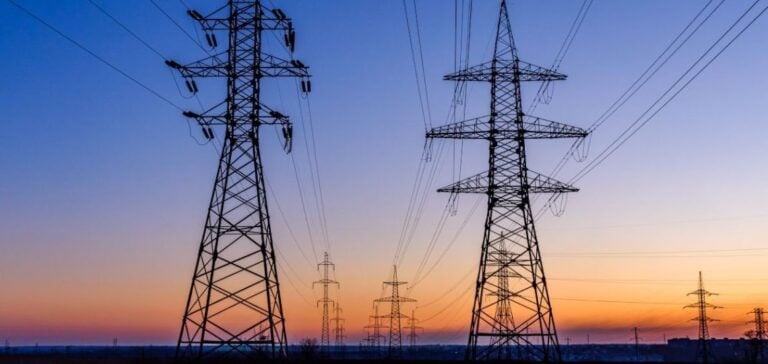Electric interconnections have long been a cornerstone for ensuring the stability and reliability of many national grids. As early as the 1920s, some European countries began negotiations to link their infrastructures to share energy surpluses. Initial agreements, such as the one between Switzerland and France in 1924, paved the way for sustainable cross-border connections. Early projects, often limited by available technology, nevertheless set a precedent for international cooperation.
Early Initiatives and the Rise of Key Players
The creation of the Union for the Coordination of the Production and Transport of Electricity (UCPTE) in 1951 brought together several public and private companies determined to optimize energy exchanges. Government representatives from France, Italy, West Germany, and Switzerland supported this initiative, believing it would better distribute production loads. Facilities inaugurated in the 1950s included high-voltage lines designed to transport several hundred megawatts across mountainous terrains. This period saw the emergence of consortia involving public enterprises, promoting the rapid development of interconnected infrastructure.
In the early 1960s, the emergence of high-voltage direct current (HVDC) connections revolutionized electricity transportation over long distances. The project connecting France and the United Kingdom, launched in 1961 by the Central Electricity Generating Board and Électricité de France (EDF), marked a significant milestone of its time. This initiative benefited from the technical support of British and French engineering groups, which contributed to the gradual standardization of submarine cables. Subsequently, the reliability of these infrastructures encouraged other countries to consider similar connections, always with a focus on energy diplomacy.
Expansion into Multi-Continental Interconnections
The gradual opening of external markets led to projects linking Europe to North Africa, with the interconnection between Spain and Morocco being a prime example. In 1997, Red Eléctrica de España and Morocco’s National Office of Electricity validated an agreement for a 400 MW submarine line. Exchanges intensified in subsequent years, facilitated by technical negotiations on capacity allocation and joint equipment maintenance. This interconnection allowed Morocco to benefit from European expertise while providing Spain with additional flexibility in cross-border exchanges.
Meanwhile, Tunisia and Italy began feasibility studies as early as 2003 to link their grids via a submarine connection. Terna, the Italian electricity transmission operator, and the Tunisian Electricity and Gas Company (STEG) validated the technical parameters for a 200-kilometer route in 2007. Engineers focused on the region’s seismic constraints, planning for an initial capacity of 600 MW expandable to 1,000 MW. This trans-Mediterranean cooperation, encouraged by international financial institutions, aimed to stimulate exchanges and stabilize demand during peak periods.
Regulated and Liberalized Markets
The integration of regulated and liberalized electricity markets raises questions about capacity allocation and pricing mechanisms. In Canada, the province of Ontario began liberalizing its electricity market in 2002, while Quebec remained under a regulated model dominated by Hydro-Québec. Early cross-border exchange negotiations, initiated well before liberalization, considered differing consumption profiles in each province. Consequently, Hydro-Québec’s obligation to provide fair access to independent producers faced constraints related to pricing and network management.
In Europe, the implementation of directives aimed at electricity market liberalization, starting in 1996 and reinforced in 2003, transformed interconnection management. The European Commission imposed non-discriminatory network access, while the Agency for the Cooperation of Energy Regulators (ACER) oversaw rule harmonization. Transmission system operators, united within ENTSO-E (European Network of Transmission System Operators for Electricity), defined standardized protocols to optimize cross-border exchanges. This unified approach reduced regulatory barriers and ensured greater transparency in capacity allocation, although asymmetries persist between countries.
Financial Challenges and Benefit Distribution
Building cross-border infrastructure requires significant capital, often mobilized through partnerships between governments, development banks, and private operators. For instance, the European Investment Bank committed to financing multiple projects linking France to England from the 1970s and later supported extensions to Belgium and the Netherlands. Similarly, the World Bank and the African Development Bank played key roles in fostering interconnections in North and Sub-Saharan Africa. Negotiating long-term contracts, combined with congestion revenue-sharing agreements, reduced investor risk while ensuring transparent benefit distribution.
Capacity allocation often occurs through explicit or implicit auctions, contributing to a congestion price that reflects the scarcity of available capacity. In Europe, day-ahead market coupling was progressively introduced in the 2000s, culminating in 2014 with a single market for most member states. This evolution required harmonizing trading platforms and close coordination between energy exchanges and network operators. Revenue from these auctions was reinvested in interconnection maintenance and expansion, enhancing the reliability of the pan-European electricity system.
Evolution and Diplomatic Strategies
In Eurasia, Turkey and Georgia signed cooperation protocols in 1996 to better coordinate their installations, with an interconnection project materializing in 2002. The Turkish Electricity Transmission Corporation (TEİAŞ) collaborated with Georgia’s Ministry of Energy to adapt technical standards and ensure gradual network synchronization. Regional institutions provided loans to finance infrastructure work, including building compatible transformer stations. This collaboration strengthened Georgia’s position, seeking to open its market to foreign investors and diversify its hydropower exports.
On a broader scale, the notion of a European “supergrid” began to take shape around 2010, supported by industrial consortia and government organizations. The Desertec project, launched in 2009, aimed to harness North Africa’s solar energy for export to Europe via vast direct current networks. Several expert groups assessed the economic feasibility of these interconnections, emphasizing the need for long-term political agreements. Institutional partners also highlighted the importance of clauses ensuring equitable benefit distribution and local ecosystem protection.






















